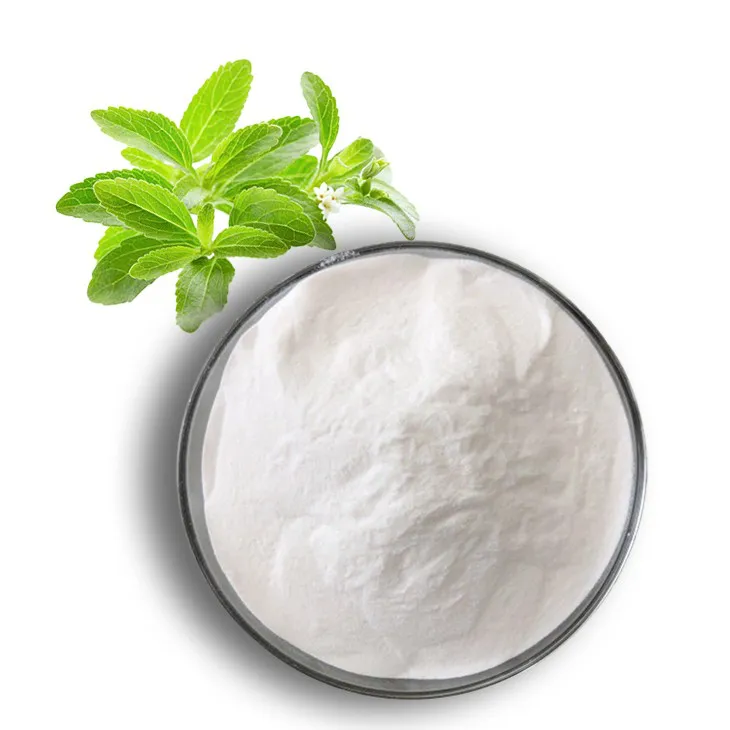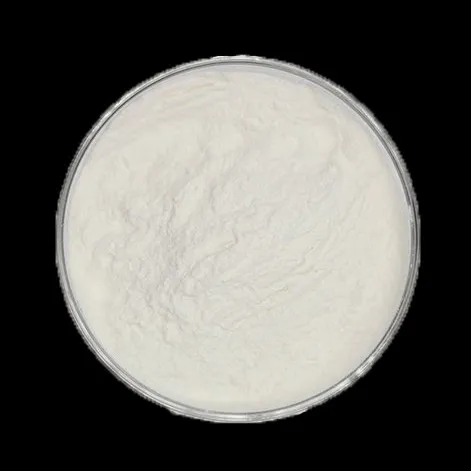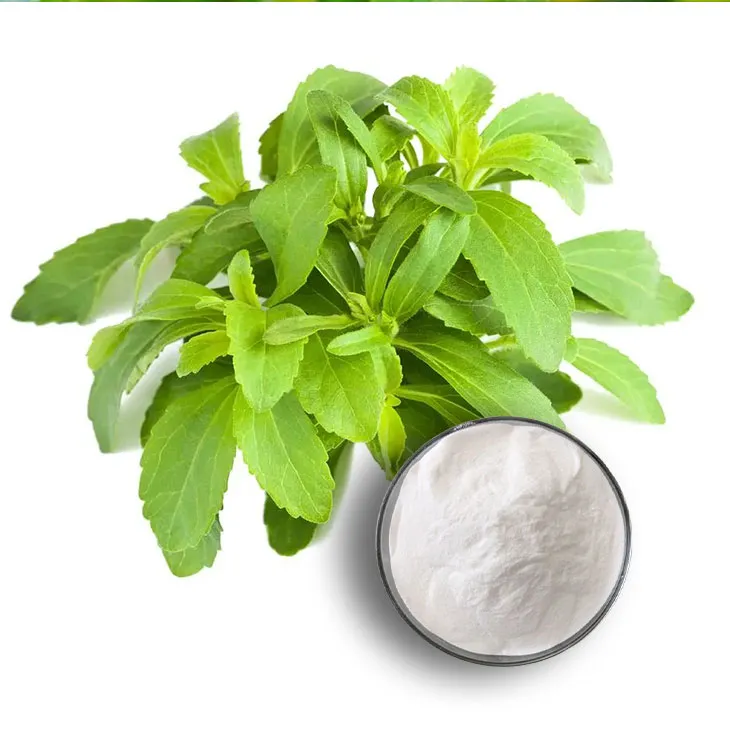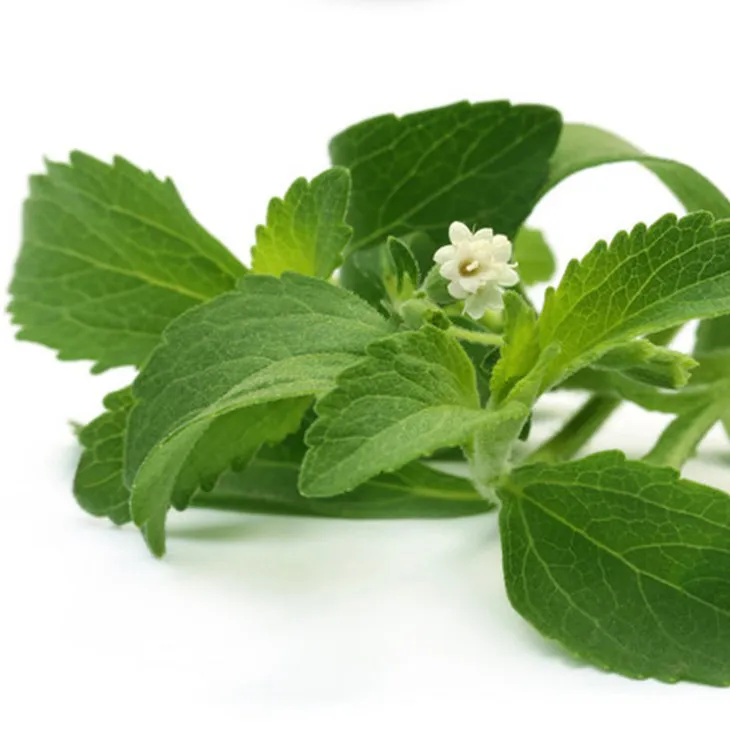- 0086-571-85302990
- sales@greenskybio.com
The best sources of natural stevia extract.
2024-11-26

1. Introduction
Natural Stevia Extract has gained significant popularity as a sugar substitute in recent years. It is derived from the stevia plant, which contains natural sweet - tasting compounds that are much sweeter than sugar but have a low calorie content. When exploring the best sources of natural Stevia Extract, various factors come into play, including the origin of the plant, the cultivation methods, and the extraction processes. This article will delve into some of the top sources of natural Stevia Extract, highlighting their unique characteristics and advantages.

2. Stevia from Paraguay
Paraguay as the Native Habitat
Paraguay is considered one of the prime sources of natural stevia extract. The stevia plant is native to this South American country. The Paraguayan climate plays a crucial role in the quality of stevia produced. Paraguay experiences distinct seasons and ample sunlight throughout the year. The sunlight is essential for the stevia plants as it enables them to carry out photosynthesis effectively. Through photosynthesis, the plants are able to accumulate a high amount of sweet - tasting substances, such as stevioside and rebaudioside. These compounds are what give stevia its characteristic sweetness.
Traditional Farming Knowledge
In addition to the favorable climate, the traditional farming knowledge in Paraguay also contributes to the high - quality stevia production. Farmers in Paraguay have been cultivating stevia for generations. They have a deep understanding of the plant's growth requirements. For example, they know the optimal time for sowing, watering, and harvesting the stevia plants. This traditional knowledge has been passed down through the years and is still being applied in modern stevia cultivation in Paraguay. The use of traditional farming methods also often means that the plants are grown in a more natural and sustainable way, without the excessive use of synthetic fertilizers and pesticides.

3. Home - grown Stevia
The Rise of Home Gardening
Another notable source of natural stevia extract is stevia grown in home gardens. In recent years, there has been a growing trend around the world of people growing their own food and herbs in small home gardens. Stevia has become a popular addition to these gardens. Many individuals are attracted to the idea of growing stevia at home because it allows them to have a fresh and pure source of natural sweetener. Home - grown stevia gives people more control over what they consume, as they can ensure that no harmful chemicals are used in the cultivation process.
Benefits of Small - scale Cultivation
Since home - grown stevia is cultivated on a small scale, it is often cared for with great attention. Gardeners can closely monitor the growth of the plants and address any issues promptly. Compared to large - scale commercial farming, home - grown stevia is free from mass - production chemicals. Gardeners can choose to use organic fertilizers and natural pest control methods, ensuring that the plants are grown in an environment - friendly way. The resulting extract from home - grown stevia can be used for personal consumption. Some people also use it for small - scale production of natural sweeteners, such as making their own stevia - based syrups or adding the dried and powdered stevia leaves to baked goods.

4. Stevia from Sustainable Agricultural Cooperatives
Sustainable Farming Practices
Stevia sourced from sustainable agricultural cooperatives is highly regarded in the market. These cooperatives are committed to long - term environmental and social sustainability. They focus on practices that protect the local ecosystem while cultivating stevia plants. For instance, they may use crop rotation techniques to maintain soil fertility and prevent soil erosion. They also promote the use of natural predators to control pests instead of relying on chemical pesticides. By doing so, they ensure that the stevia plants are grown in harmony with the local environment.
Fair Trade and Transparency
Another important aspect of sustainable agricultural cooperatives is their emphasis on fair trade practices. They ensure that the farmers involved in stevia production are fairly compensated for their work. This not only helps to improve the living standards of the farmers but also encourages them to continue producing high - quality stevia. Moreover, the extraction process in these cooperatives is often more transparent and ethical. Consumers can have more confidence in the quality of the stevia extract sourced from such cooperatives. The cooperatives may also be more likely to adhere to strict quality control standards, ensuring a high - quality and sustainable source of stevia extract.

5. Comparison and Considerations
Quality Comparison
When comparing the quality of stevia extract from different sources, each has its own strengths. Stevia from Paraguay benefits from its native environment and traditional farming knowledge, which may result in a unique flavor profile. Home - grown stevia offers the advantage of freshness and purity, as it is grown without the use of many commercial chemicals. Stevia from sustainable agricultural cooperatives, on the other hand, is often produced with a focus on environmental and social responsibility, which can translate into a more ethical and sustainable product.
Availability and Cost Considerations
In terms of availability, stevia from Paraguay may be more widely available in international markets due to its large - scale commercial production. However, home - grown stevia is limited to the amount that can be produced in a small home garden. Stevia from sustainable agricultural cooperatives may be available through specialized markets or fair - trade channels. Cost - wise, home - grown stevia can be cost - effective for personal use as it does not require the purchase of large quantities. Stevia from Paraguay may be more competitively priced in the mass market, while stevia from sustainable agricultural cooperatives may be priced slightly higher due to the additional costs associated with sustainable and fair - trade practices.
6. Conclusion
In conclusion, the best sources of natural stevia extract depend on various factors, including quality, availability, and cost. Paraguay offers a traditional and large - scale source of stevia with its native plants and favorable climate. Home - grown stevia provides a pure and personalized option for those with the space and inclination to grow their own. Sustainable agricultural cooperatives offer an ethical and environmentally - friendly source of stevia extract. Consumers can choose the source that best suits their needs, whether it is for personal use, small - scale production, or large - scale commercial applications.
FAQ:
What makes Paraguayan stevia a top source of natural stevia extract?
The Paraguayan climate, with its distinct seasons and ample sunlight, allows stevia plants to accumulate a high amount of sweet - tasting substances. Also, the traditional farming knowledge in Paraguay helps in the proper cultivation of stevia.
Why is stevia grown in home gardens considered a good source of natural stevia extract?
Stevia grown in home gardens can be a pure and fresh source of extract. It is grown on a small scale and often cared for with great attention, free from mass - production chemicals. Gardeners can ensure an environment - friendly growth, and the extract can be used for personal consumption or small - scale production of natural sweeteners.
What are the advantages of stevia sourced from sustainable agricultural cooperatives?
These cooperatives focus on long - term environmental and social sustainability. They promote fair trade practices while producing stevia extract. The plants are grown in harmony with the local ecosystem, and the extraction process is often more transparent and ethical, ensuring a high - quality and sustainable source of stevia extract.
Are there any differences in the quality of natural stevia extract from different sources?
Yes, there can be differences. Paraguayan stevia may have a high content of sweet - tasting substances due to the local climate and farming knowledge. Home - grown stevia in gardens is likely to be pure as it is free from mass - production chemicals. Stevia from sustainable cooperatives is of high quality because of the focus on environmental and social sustainability and ethical extraction processes.
Can the natural stevia extract from these sources be used directly in food?
It depends on various factors such as local regulations and the extraction process. In some cases, if the extract is pure and meets food safety standards, it can be used directly in food. However, for home - grown stevia extract, it may be more suitable for personal use in small - scale food preparation rather than large - scale commercial food production without proper processing and approval.
Related literature
- The Stevia Plant: Botany, Horticulture, and Its Use as a Sweetener" by James E. Simon
- "Stevia: A Natural Sweetener with Potential Health Benefits" by Maryam Saeedi
- ▶ Hesperidin
- ▶ citrus bioflavonoids
- ▶ plant extract
- ▶ lycopene
- ▶ Diosmin
- ▶ Grape seed extract
- ▶ Sea buckthorn Juice Powder
- ▶ Beetroot powder
- ▶ Hops Extract
- ▶ Artichoke Extract
- ▶ Reishi mushroom extract
- ▶ Astaxanthin
- ▶ Green Tea Extract
- ▶ Curcumin Extract
- ▶ Horse Chestnut Extract
- ▶ Other Problems
- ▶ Boswellia Serrata Extract
- ▶ Resveratrol Extract
- ▶ Marigold Extract
- ▶ Grape Leaf Extract
- ▶ blog3
- ▶ blog4
-
Nature's Bounty Maitake Mushroom Extract.
2024-11-26
-
100% Pure Natural Fructus Aurantii Extract.
2024-11-26
-
100% Organic Fig Extract.
2024-11-26
-
Chinese Rose Hip Extract Powder Factory.
2024-11-26
-
Beta Carotene
2024-11-26
-
Andrographis Paniculata Extract Powder
2024-11-26
-
Lemon Balm Extract
2024-11-26
-
Gynostemma pentaphyllum extract
2024-11-26
-
Resveratrol extract
2024-11-26
-
Shikonin
2024-11-26
-
Purple Sweet Potato Extract
2024-11-26
-
Yellow Pine Extract
2024-11-26
-
Boswellia Serrata Extract
2024-11-26
-
Dan Shen Root Extract/Salvia Root Extract
2024-11-26





















